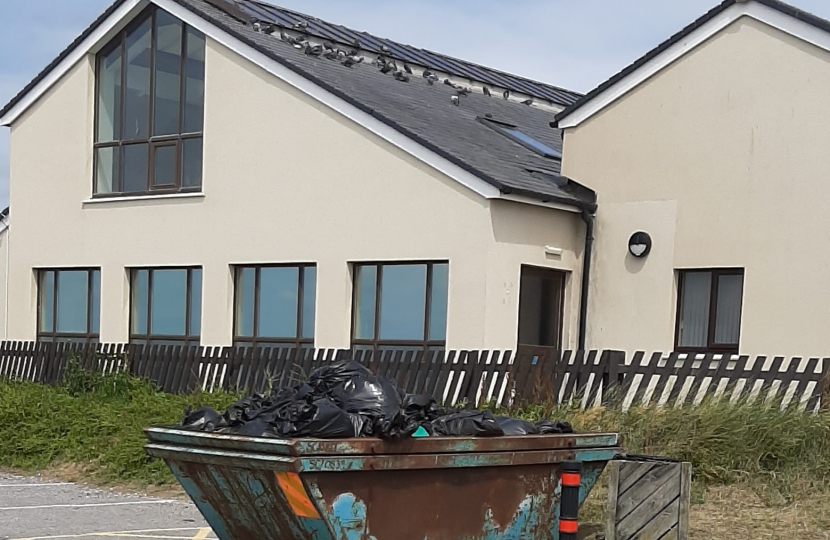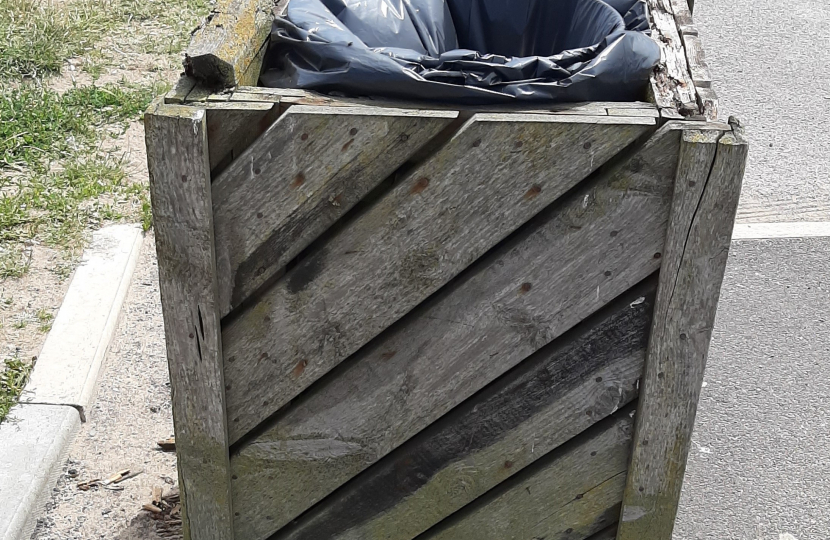Thank you so much to the Wombles who have been detailing their fabulous work on Facebook in their efforts to pick up litter from the roads and pavements in our community. There are many of us who spend considerable amounts of time sweeping the pavements outside our homes and removing debris from gutters and grids and this additional help is much appreciated.
Street sweeping
Many of us will have witnessed the new mechanical sweeping machines that have been given to the cleansing officers as they work their way through Crosby Village and Waterloo. These machines are supposed to be more efficient than a brush and shovel and are very effective at reaching those hard to reach places such as under benches and other street furniture. Some machines also jet wash areas which are particularly dirty.
Cleaning our streets of litter and removing fly tipping is not a pleasant job, particularly when the weather is poor or when there has been an increase in footfall at special events. The role of those charged with cleaning our streets is not made easy when the litter bins that the council provide are completely inappropriate.
Government funding – the Resource Action Fund
There have been opportunities for the Labour Council to secure additional funding from the Government to deal with the collection of litter. The Resource Action Fund was an £18 million fund, provided by Defra and managed by environmental charity WRAP, which supported resource efficiency projects in England in the key areas of food, plastics, textiles, recycling and litter. It does so through a variety of mechanisms including large and small-scale grants.
A total of £22,358 in UK Government funding was awarded to Sefton Council under the Resource Action Fund to help support its important work to improve the ‘infrastructure’ (bin infrastructure) within litter-prone hotspots.
The Council’s Green Sefton Service secured funding for 48 replacement bins to be installed at key littering hotspots across parks and coastal locations.
Green Sefton is responsible for managing more than 500 bins across 121 sites and is using its successful bid for funding to target locations with high footfall and those that have historically been affected by nuisance littering. Outdoor markets, local festivals and funfairs all add to the large amounts of litter on our streets and greenspaces.
Open top 80-litre capacity bins across 48 spots, are being replaced with larger 120-litre capacity bins with a covered top. Twenty of the new bins will feature a bright yellow top so that they are easier for people to spot when using those spaces.
Sadly none of these are evident on the grassed areas of Crosby seafront.
Adequate litter bins
Open topped refuse bins, provide an easy target for birds to find food, and high winds will easily lift off paper and plastic and blow it around the ground. Some members of the public will try to dispose of their litter in these bins but then they become too full and the plastic bin liner becomes more difficult to remove securely.
A walk along the seafront highlights the issues that face the public when trying to dispose of their rubbish as they walk along the seafront. Although there are some large metal litter bins with secure tops, there are still wooden bins along the grassed areas. These are in some cases broken and as they are open topped provide a feast for hungry birds and rats. High winds often blow the contents along the seafront and onto the beach.
It really does very little to enhance the beauty of our seafront when the council park a skip outside the Coastguard Station for the collection of litter. Surely, we can expect more from our Labour Council than this.
It would be helpful for all concerned if, when there is a Bank Holiday, street market or local festival arranged which increases footfall, for the council to supply more bins or reorganise more frequent collection times to deal with the increased capacity of litter.
If our Labour Council are short of inspiration and ideas concerning the most effective type of bins to use, perhaps a visit to Blackpool would help. Not only are the bins in this district more effective but they also encourage the public to place their rubbish in the appropriate recycling bin. This is sadly not evident on our own sea frontage.
Cleaning our highways
The vehicles used for sweeping our streets have an increasingly difficult job to do as parked cars make it practically impossible for them to clean a road completely. They spend a great amount of their time navigating their way between parked vehicles, rather than cleaning the roadside effectively. Those householders who employ gardeners “the cut, blow and go “brigade don’t help either. The excess cut grass, leaves and weeds get blown into the gutter where they rot down to form a peaty mould which prevents the flow of rainwater along the gutter to the grid, thus causing flooding.
It would help if the Council was to provide residents with a schedule of when their roads are to be swept so that cars could be temporarily relocated to enable the street sweeper to access the gutters.
Cleanliness – a shared responsibility
We all have a part to play in keeping our Borough clean and litter free. This involves personal responsibility in taking litter home, but also requires the Council to provide adequate bins in key locations and to ensure they are regularly emptied.




